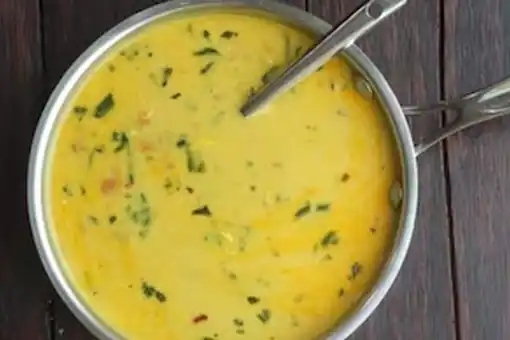If you’ve ever attended a South Indian feast, you are probably in awe of the delicacies that were presented to you on a banana leaf. The meal culminates on a sweet note with vegetable dishes in varying states of fluidity, pickles, buttermilk, and curd. You might assume that consuming so many different dishes at once would cause indigestion. You can count on South Indian dishes to address this issue, as the solution lies within the meal itself. All you have to do is end your feast with the popular rasam. In general, rasam is a soup-like dish that is sour and has a lot of liquid. Tamarind, tomato, black pepper, garlic, asafetida and mustard seeds are the chief ingredients. There is yet another variant of rasam, which also adds milk to it. Unlike regular rasam, milk or paal rasam is mild in taste, not spicy or watery. Paal rasam is a good choice for those who don’t like very spicy food; or want to avoid spicy food but want to still get the digestive benefits of rasam. Here’s how you can prepare milk rasam at home without too much hassle.
Ingredients:
Tomatoes – 3 or 4 (finely chopped)
Salt – as needed
Water – 2 cups
Ghee – 1 tbsp
Mustard – to taste
To prepare the powder, you will need:
Coriander – 1 tbsp
Urutam dal- 1 tablespoon
Chillies – 1 or 2
Pepper – 1/2 tsp
Cumin 1/2 tsp
Asafetida – 1/4 tsp
After gathering the ingredients, take some oil and fry them in it to make a powder. After the powder is ready, follow these steps:
Put in salt and tomatoes to 2 cups of water and let it boil for 10 minutes. Mash the tomatoes with a spoon.
Add the powder and let it boil for 5 minutes.
Then add 1 cup of milk.
Keep the stove on medium heat till it foams.
Season the ghee with mustard and curry leaves. Your milk rasam is ready. You can serve it with chaat or plantain chips for an effective combination.
It is also known as paal rasam.


